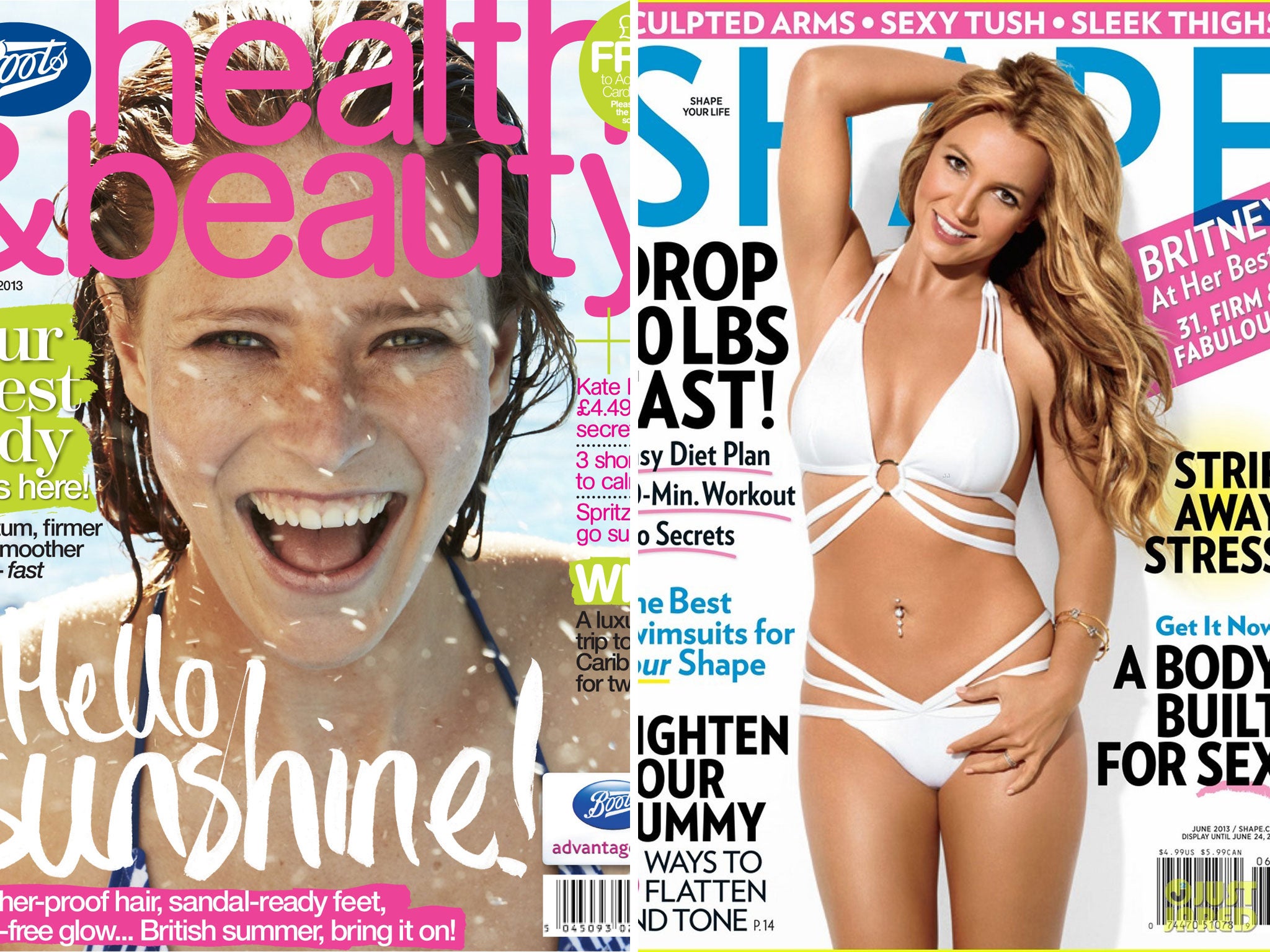Can you tell which cover girls are the real thing?
Boots has pledged to stop digitally enhancing its models

Your support helps us to tell the story
From reproductive rights to climate change to Big Tech, The Independent is on the ground when the story is developing. Whether it's investigating the financials of Elon Musk's pro-Trump PAC or producing our latest documentary, 'The A Word', which shines a light on the American women fighting for reproductive rights, we know how important it is to parse out the facts from the messaging.
At such a critical moment in US history, we need reporters on the ground. Your donation allows us to keep sending journalists to speak to both sides of the story.
The Independent is trusted by Americans across the entire political spectrum. And unlike many other quality news outlets, we choose not to lock Americans out of our reporting and analysis with paywalls. We believe quality journalism should be available to everyone, paid for by those who can afford it.
Your support makes all the difference.One of Britain's biggest glossy magazines has broken ranks to take a stand against the digital trickery that transforms models into gaunt-faced mannequins.
It is not Cosmopolitan, or even Vogue, but Boots Health & Beauty magazine, which has more than three million readers. The publication is taking a stand against fakery, pledging that future covers will feature "natural" models who have not been digitally enhanced with the computerised version of the surgeon's knife. There is "no smoothing, enhancing or polishing" of the model on the cover of the May/June issue.
Elizabeth Fagan, the marketing director of Boots UK, said the move was a "permanent commitment" and an extension of a previous decision to ban airbrushing from advertising for No7 cosmetics.
The abandonment of retouching and airbrushing "in all our materials" is an ongoing process. "Women want honest, realistic images from the beauty industry," Ms Fagan said. British women "don't have an airbrushed life" and want "believable images", she added.
Helen Daley, editor of Boots Health & Beauty, said: "There's real pressure on the industry from readers who are becoming more discerning about the use of photographic trickery, and who want to look at images that make them feel good about themselves." She added: "We've had nothing but positive feedback in and outside of the industry and believe other magazines will follow suit. "
The move is part of a growing awareness that things need to change, according to Caroline Nokes MP, chair of the all-party parliamentary group on body image. It comes a week after The Independent on Sunday reported that Vogue is making a film to tell schoolchildren the truth behind its portrayal of women – to promote healthier attitudes on eating and body image.
But publishers are resisting pressure to stop "airbrushing", known as digital retouching. Britney Spears is the latest celebrity to get a digital makeover – in the June issue of Shape magazine she has a more toned silhouette than the one in photographs of her taken outside a gym in Los Angeles just two weeks ago.
When asked if they were considering following Health & Beauty's example, the publishers of Cosmopolitan, Elle, Vogue and Tatler did not respond. The publishers of Grazia and Marie Claire referred to an umbrella statement by the Professional Publishers Association (PPA), which stresses how "seriously" publishers take their responsibilities and describes "body image and eating behaviours" as "extremely complex" issues.
Alexander Fury, Fashion Editor of The Independent, said: "While there's a place for airbrushing in fashion, which deals in fantasy, there is a major problem when it is perceived as reality. There's definitely a need for greater honesty in the industry, a move away from incredulous CGI-perfection presented as 'Girl Next Door'."
Join our commenting forum
Join thought-provoking conversations, follow other Independent readers and see their replies
Comments